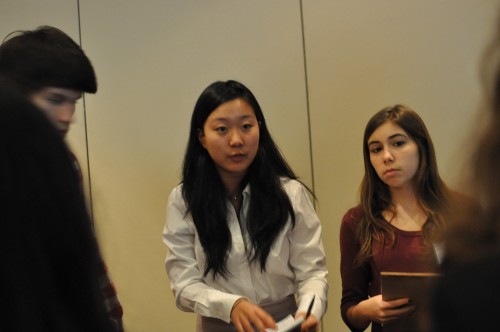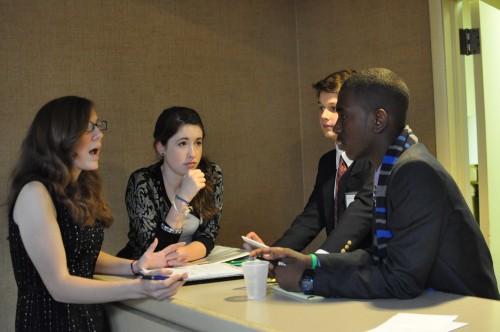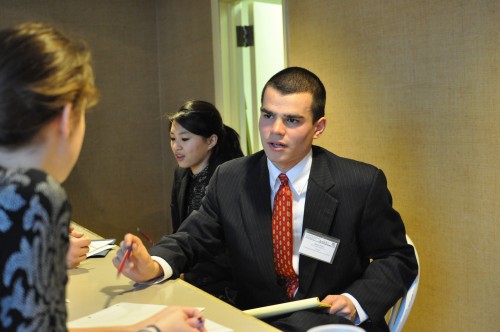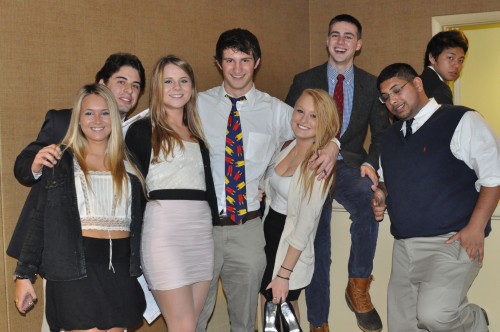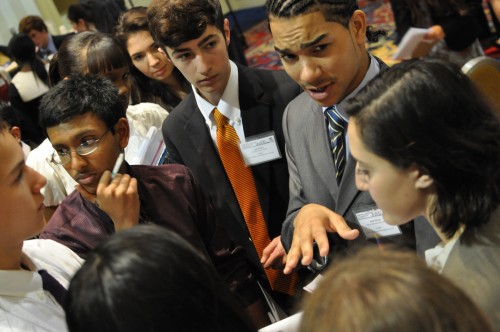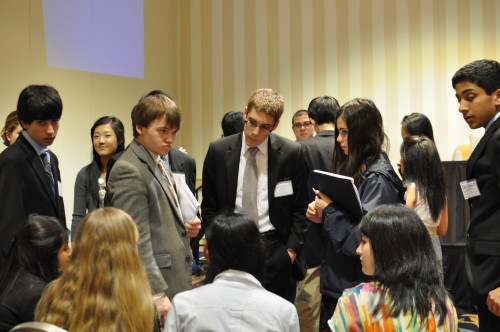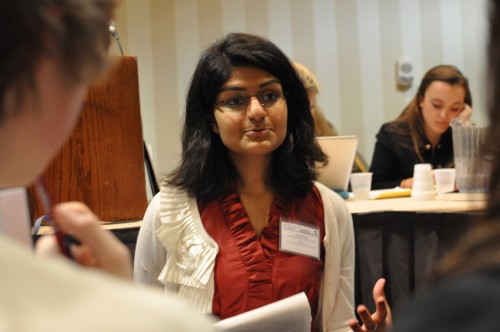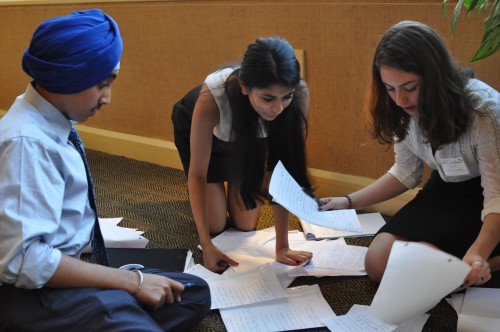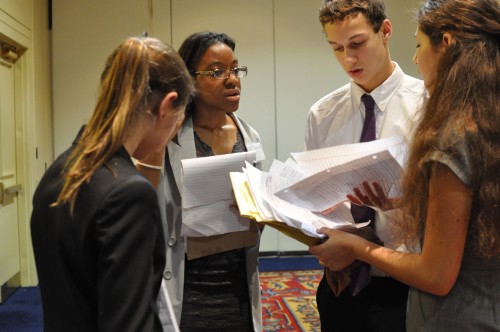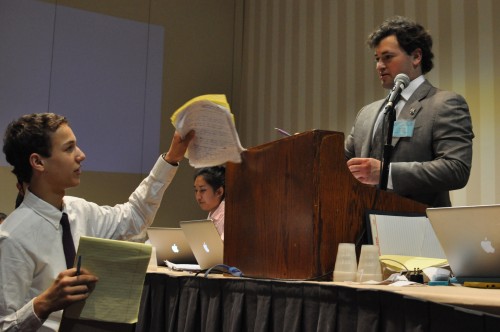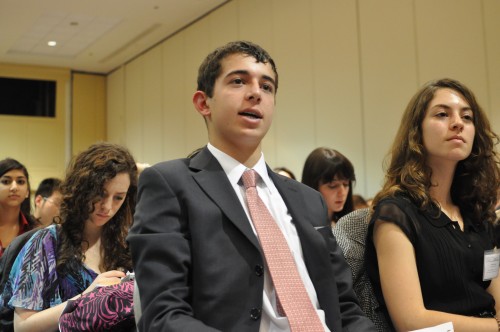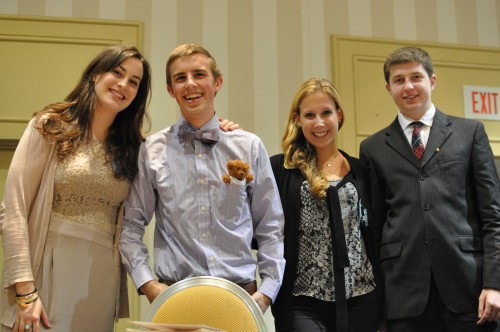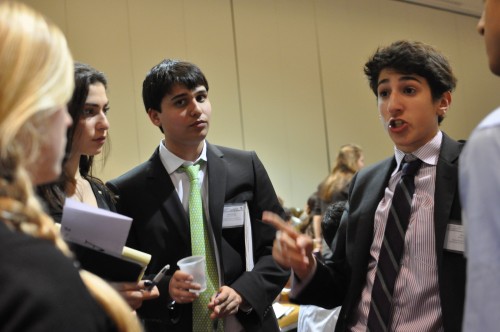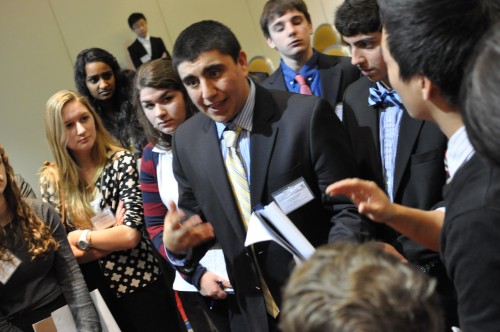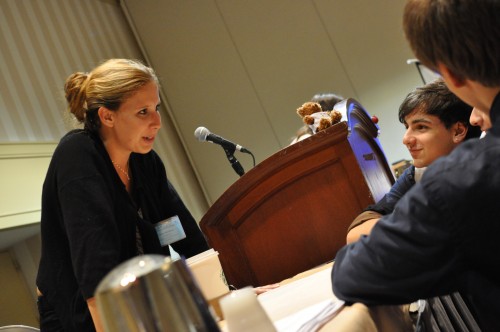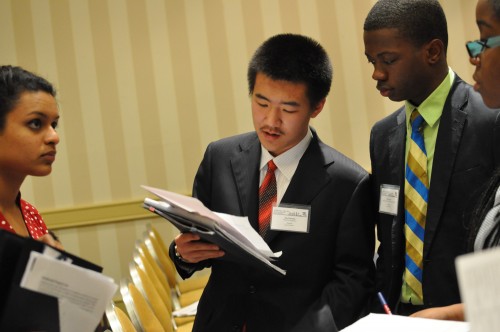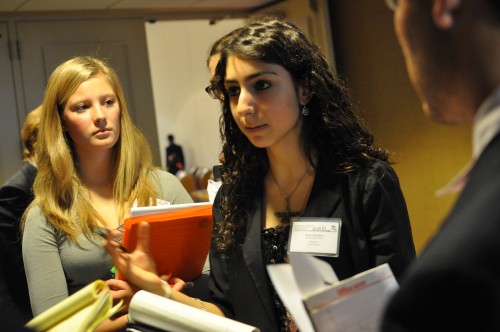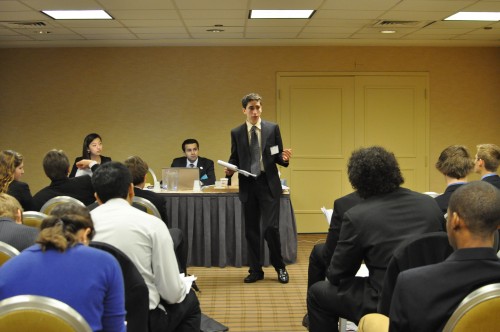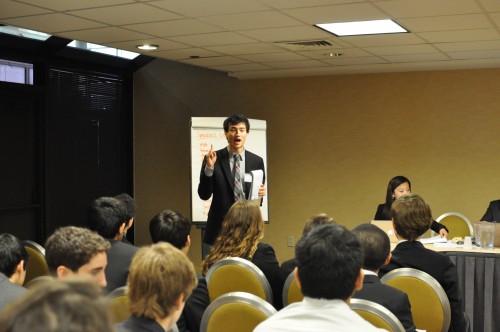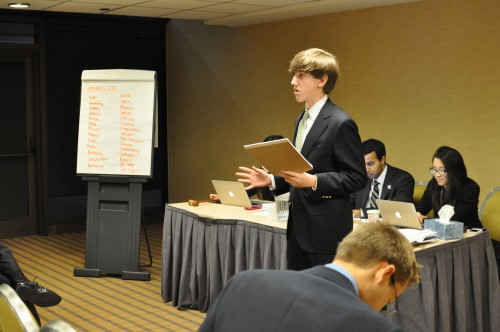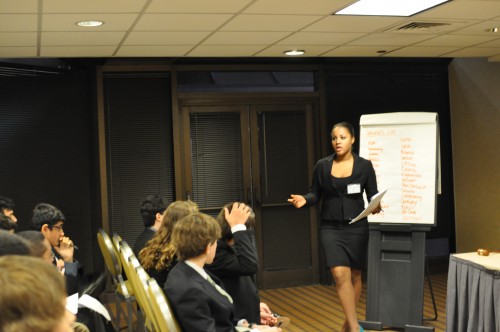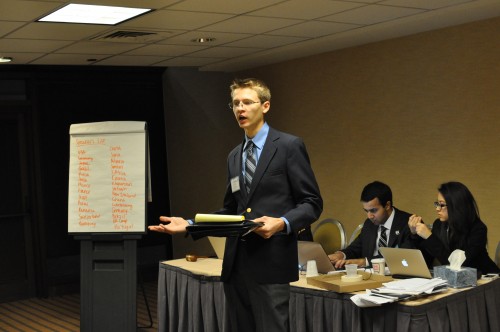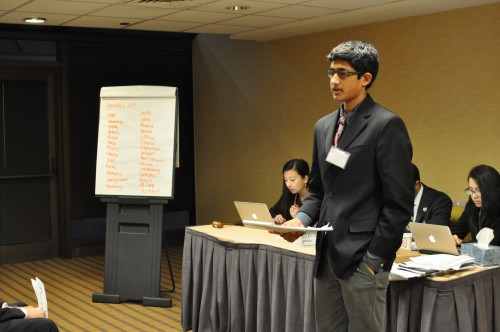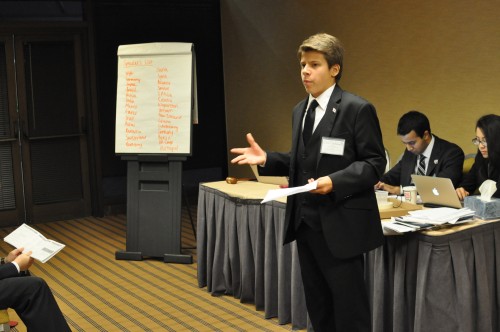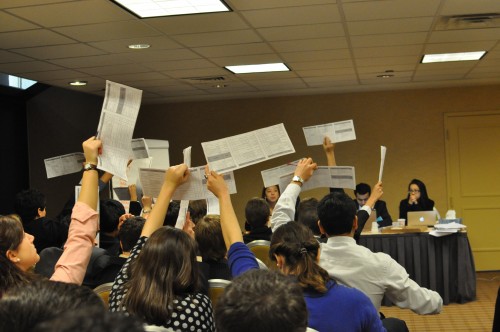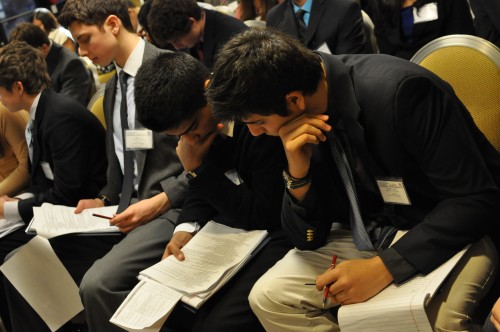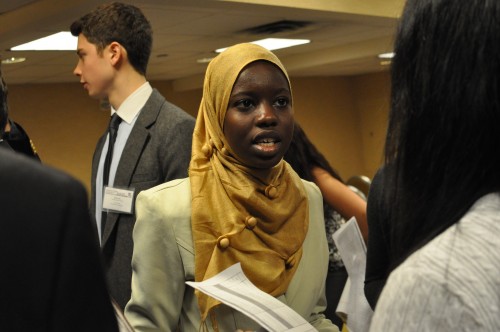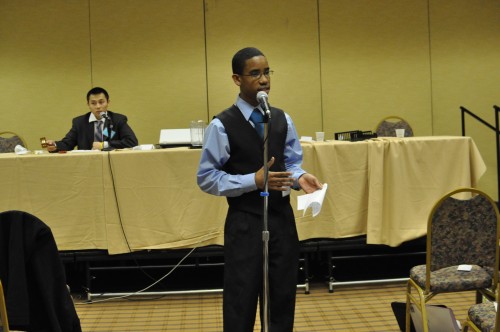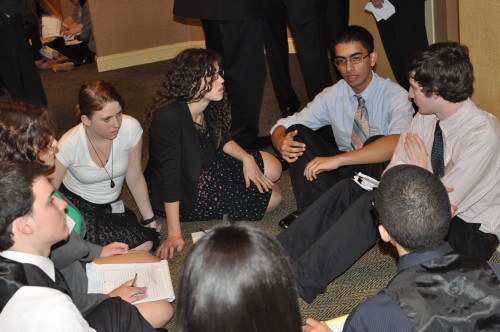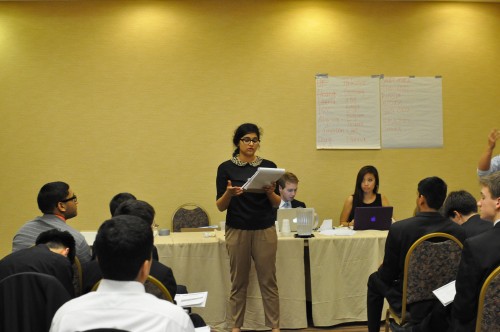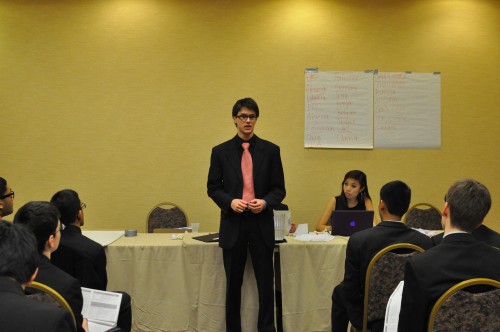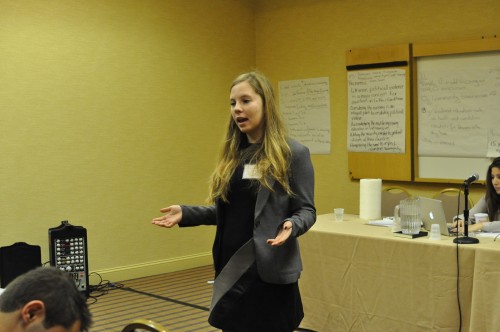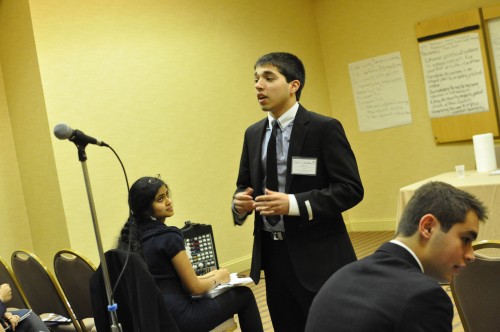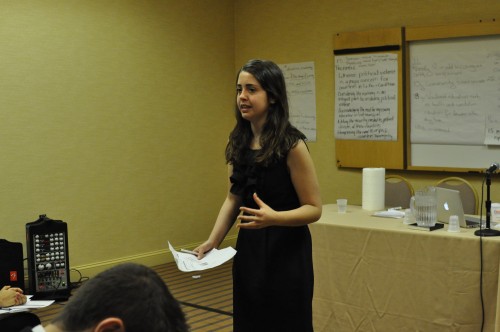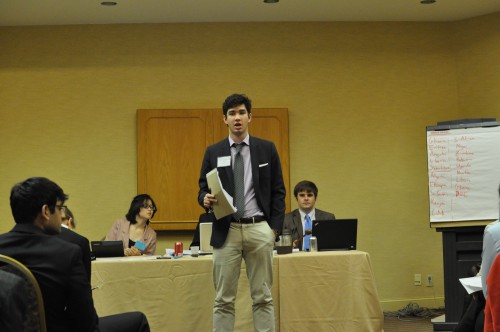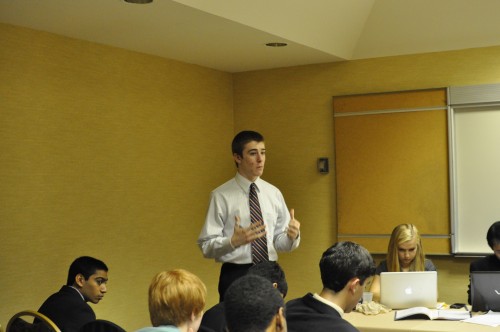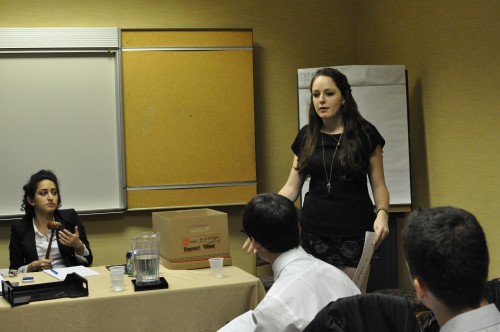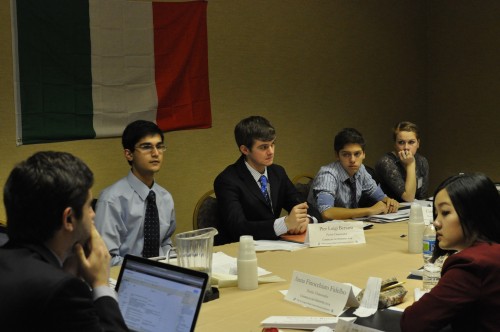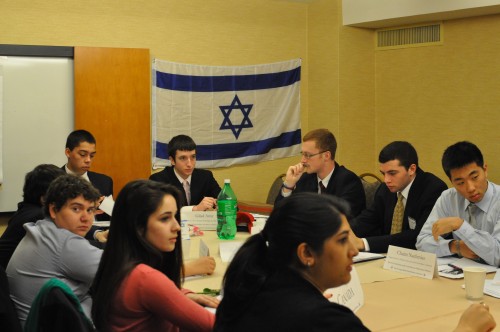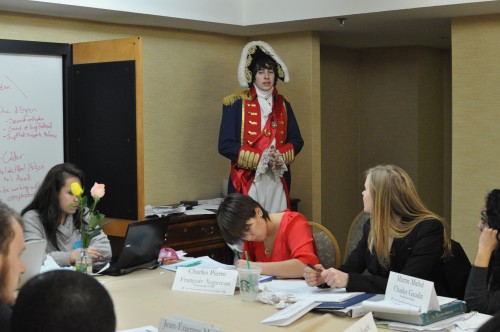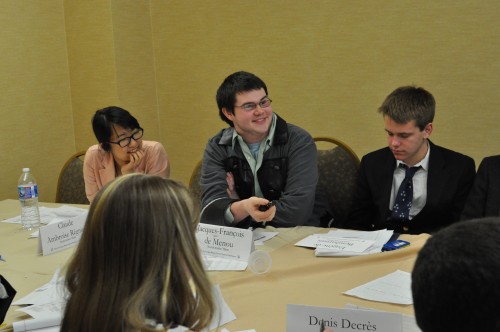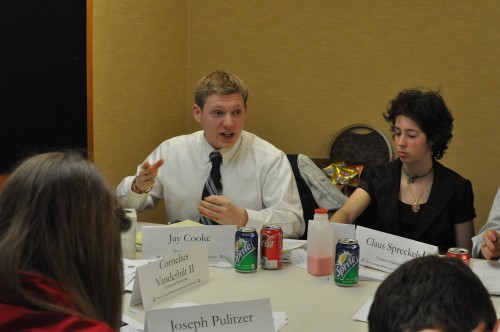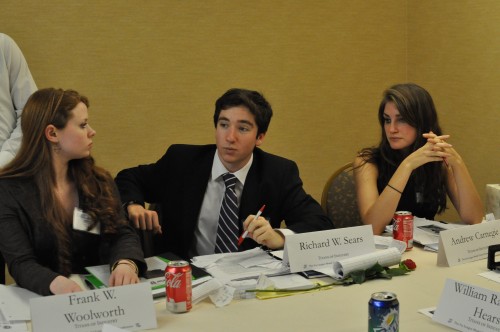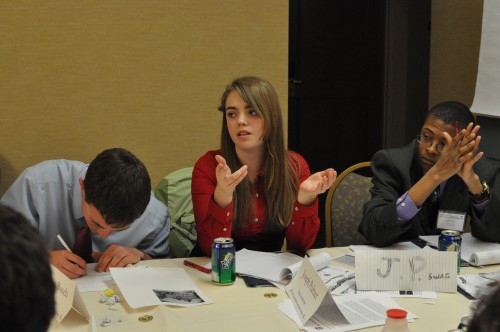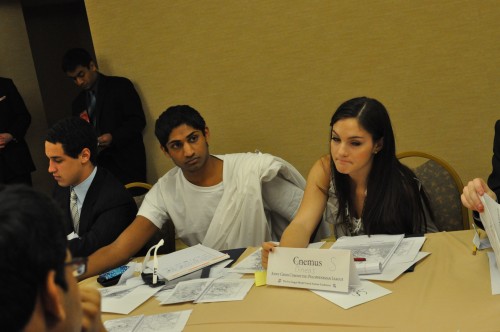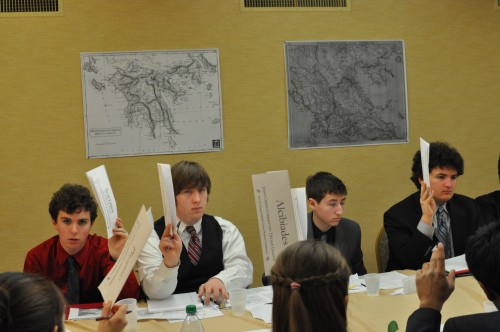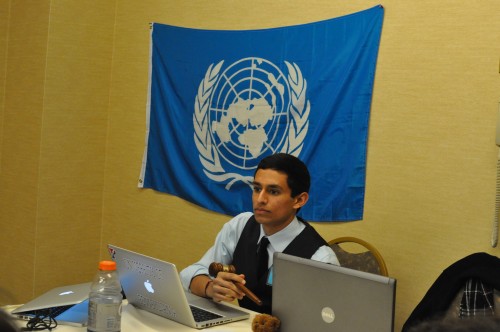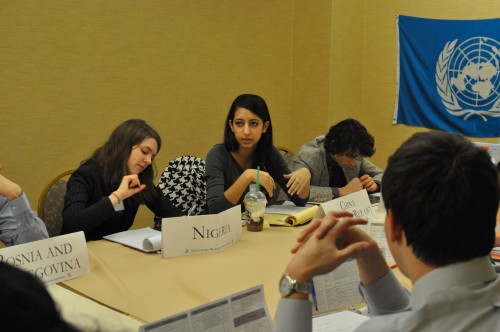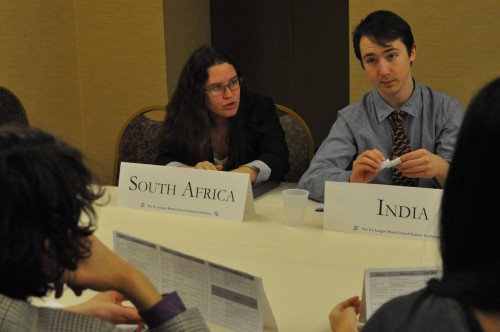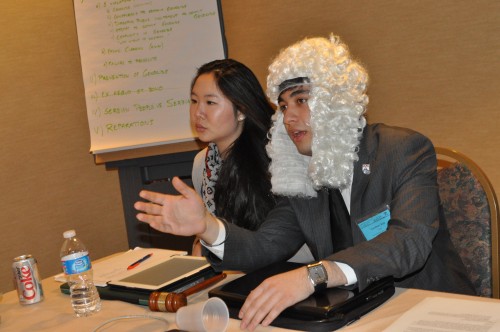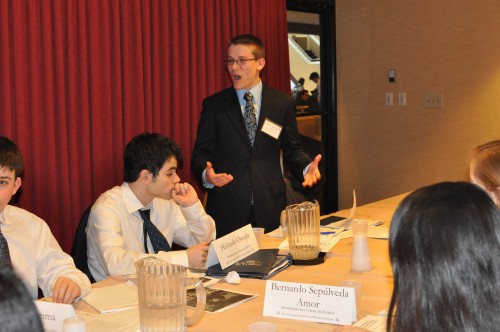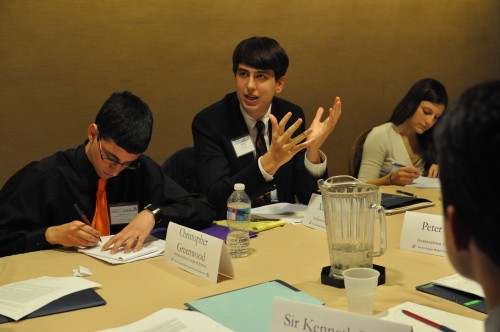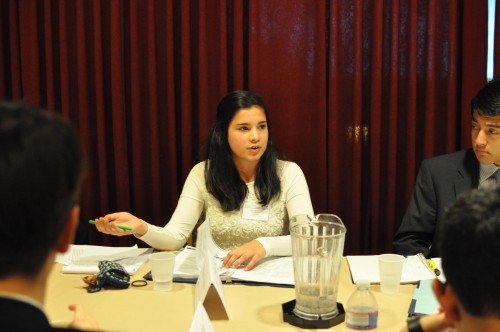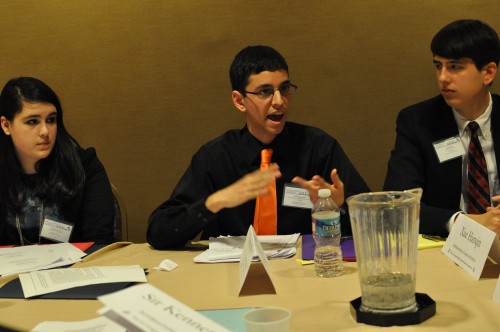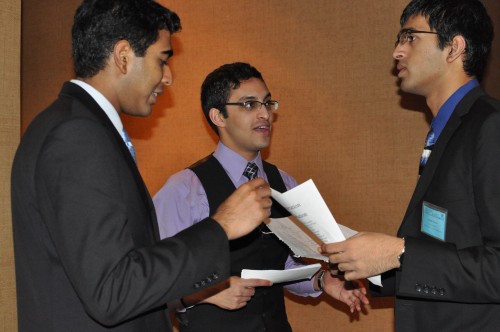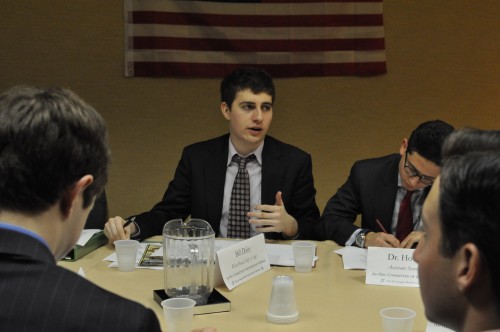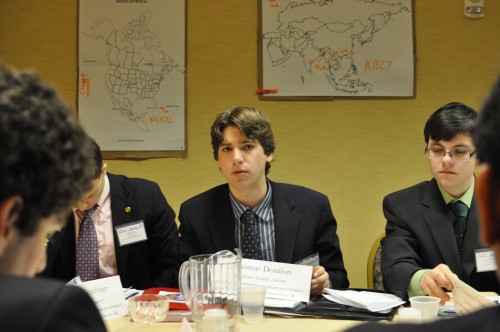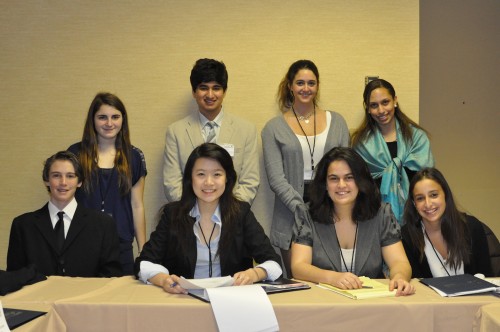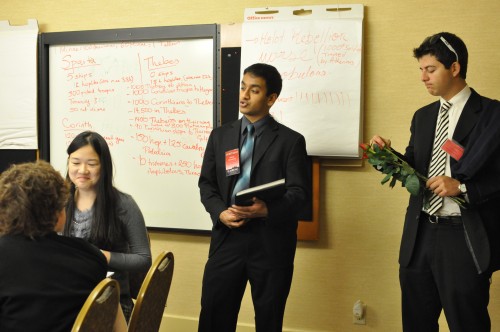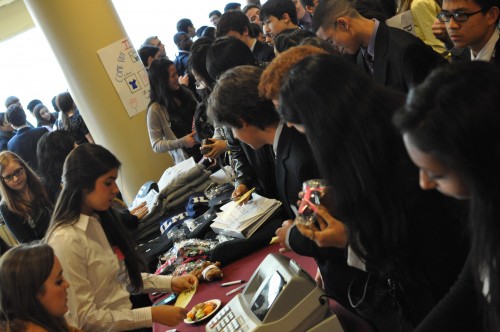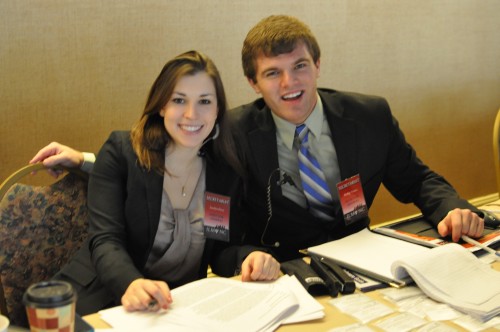The Ivy League Model United Nations Conference (ILMUNC) welcomed over 3,000 delegates during Opening Ceremonies and all these delegates got right into action. Most of them are experienced delegates who are competing at one of the largest conferences in the world, but ILMUNC made sure to open up the conference to newer delegates too with some novice committees.
We have photos of delegates in action below. Since ILMUNC set a conference record for attendance, I thought I’d set a Best Delegate record for photos of delegations in action. Check it out!
I usually take photos of delegates who are actively involved in debate or are leading their caucus bloc. Delegates from all schools — both experienced and new — were active in displaying leadership in committee. I also noticed though that the same powerhouse schools kept showing up in the unmoderated caucus photos — perhaps that’s where top-ranked teams distinguish themselves.
Regardless, we have plenty of photos for you. First up are the General Assembly committees. Due to the large size of these committees, delegates tend to spend more time on unmoderated caucus to work on draft resolutions together rather than speeches.
Disarmament and International Security (DISEC)
DISEC discussed National Sovereignty in Africa and Nuclear Proliferation in Iran as its two topics.
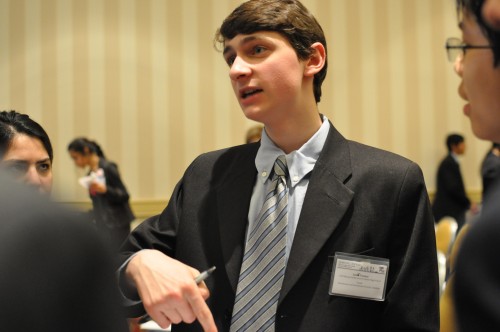
Israel (Cold Spring Harbor Junior/Senior High School) is at the center of attention as the committee discusses solutions to nuclear proliferation in Iran
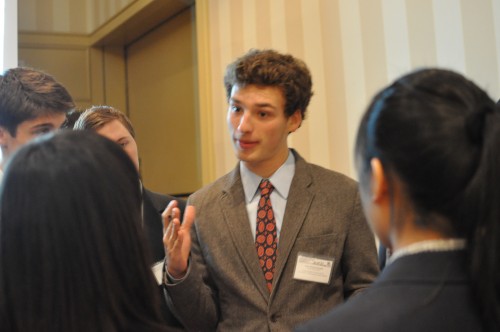
The United Kingdom (Horace Mann School) explains his country's policy regarding nuclear proliferation in Iran
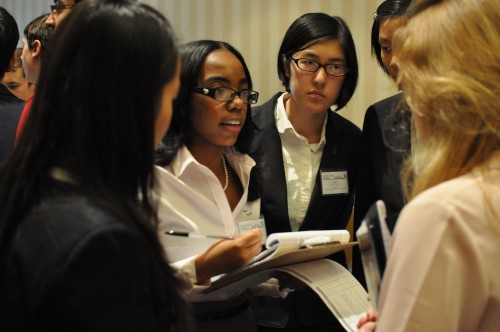
A crowd of delegates listen in as Sweden (Elmont Memorial High School) explains the main points of her draft resolution
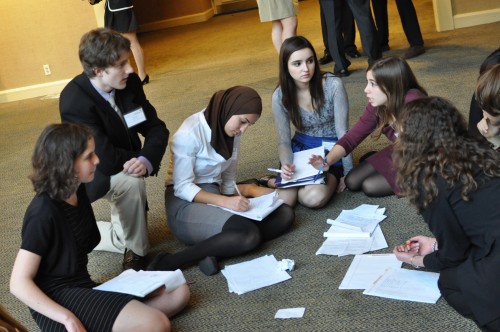
Delegates work together outside the committee room to turn their ideas into operative clauses in DISEC
Social, Cultural, and Humanitarian (SOCHUM)
U.Penn International Affairs Association (IAA) President Zach Stone has a long legacy at ILMUNC’s SOCHUM committee. He participated in it for four years as a delegate and this is his third and final time staffing that committee here (he couldn’t chair last year since he served as Secretary-General of the conference). SOCHUM discussed Brain Drain and the Internet & Human Rights.
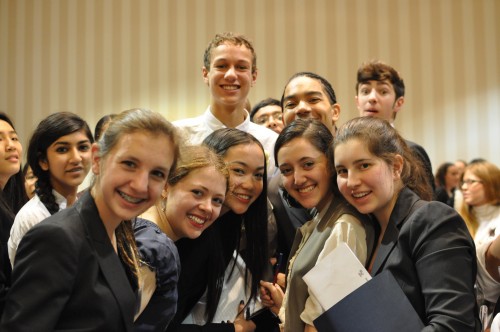
Someone in that same caucus bloc saw Best Delegate and got the group to take a quick photo. Smile -- you're on Best Delegate!
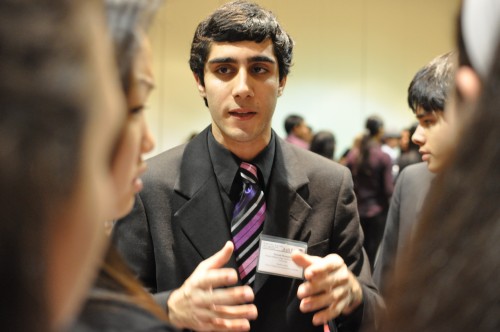
Saudi Arabia (Thomas Jefferson High School for Science & Technology) gets his country's policies across during unmoderated caucus in SOCHUM
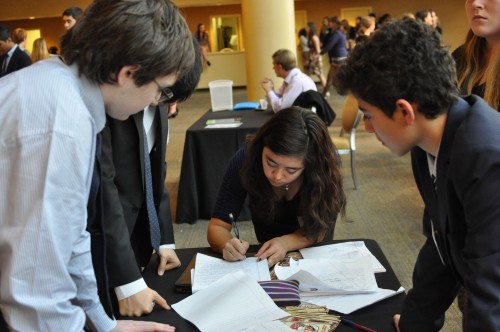
Uganda (Thomas Jefferson High School for Science & Technology) leads the writing process for her caucus bloc's draft resolution
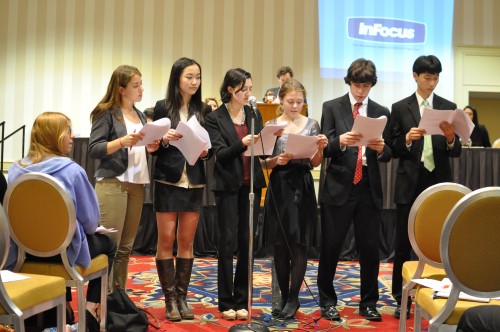
Do some of these delegates look familiar? I walked in two days later and saw some familiar faces presenting their draft resolution. From left to right: Honduras (Newark Academy), Niger (New Canaan High School), Russian Federation (West Windsor-Plainsboro High School North), Republic of Korea (Friends' Central School), Croatia (York Preparatory School), and Mauritius (Westfield High School).
Special, Political, and Decolonization (SPECPOL)
SPECPOL focused on Response to National Political Crises (particularly in the Middle East and North Africa regions) and International Cooperation in the Peaceful Exploration of Outer Space.
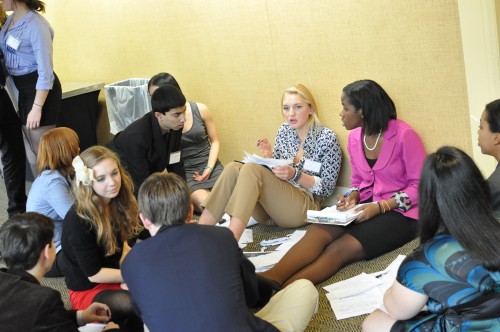
South Africa (Dana Hall School) and Sweden (Elmont Memorial High School) -- the two girls with their backs against the wall -- lead the discussion in their caucus bloc. I noticed these two co-sponsors were very collaborative in getting feedback and ideas from the rest of their allies.
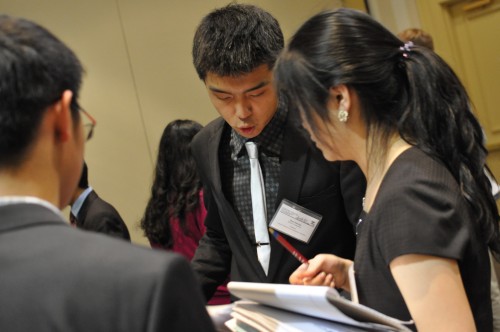
Thailand (WEMUN Delegation) reviews the draft resolution written by one of his country's co-sponsors in SPECPOL
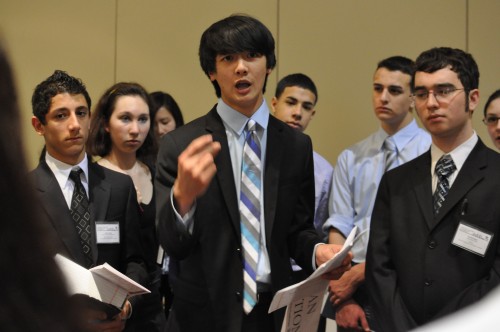
A large group of delegates listen in as the Russian Federation (West Windsor-Plainsboro High School North) lobbies for support of his caucus bloc's draft resolution
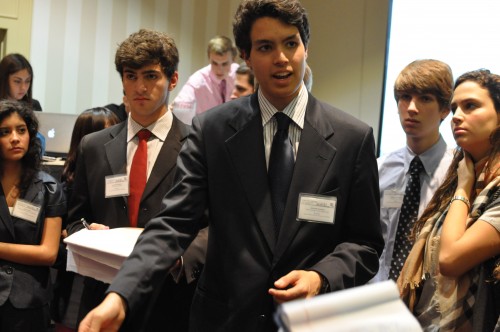
Slovenia (Thomas Sprigg Wootton High School) engages in a discussion with the Holy See as the rest of the caucus bloc listens in
General Assembly Sixth Committee – Legal
The Legal Committee tried to solve two interesting topics: Water Wars and Cyber Property Rights.
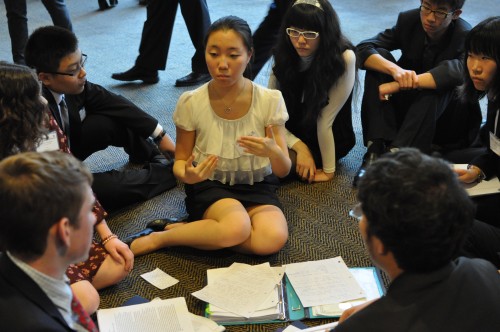
The United States (Thomas Jefferson High School for Science & Technology) takes center court during unmoderated caucus in the Legal Committee
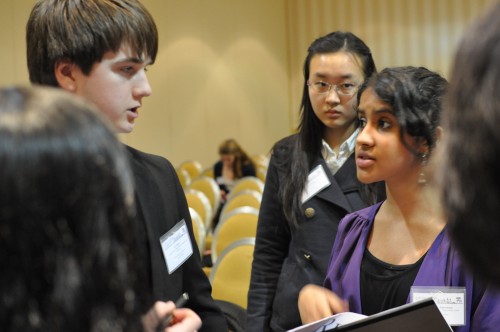
The United States (Thomas Jefferson High School for Science & Technology) and the Russian Federation (West Windsor-Plainsboro High School North) have a mini-debate to clarify their ideas
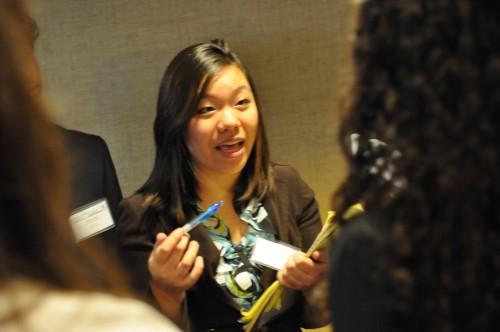
France (West Windsor-Plainsboro High School South) explains the ideas in her caucus bloc's draft resolution
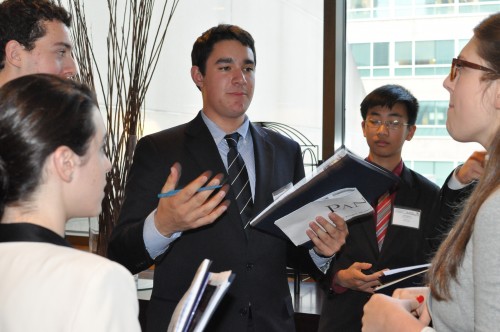
Panama (Poly Prep Country Day School) successfully gained some support for his country's draft resolution during unmoderated caucus
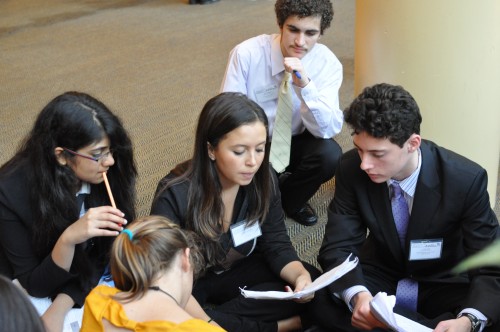
Singapore (American School of Brasilia) reads off the draft resolution to the rest of the caucus bloc
United Nations Children’s Fund (UNICEF)
Although ILMUNC is a large conference, it does draw a variety of newer schools and delegates too and this year it added a novice UNICEF conference to its lineup to cater to these newer delegates. That enabled them to soak in the grand atmosphere of a large conference and have a more even playing field when it comes to debate in committee. In my personal opinion, I think more major conferences should offer a few novice committees if they have room to expand. Delegates want to attend the best MUN conferences available and they shouldn’t be held back because of fear of competition against more experienced delegates. Here, UNICEF focused on one topic, the Needs of Children in Post-Earthquake Haiti.
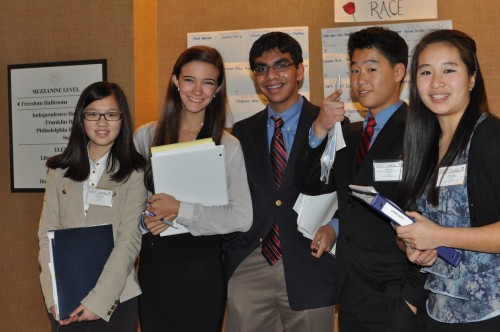
Delegates in UNICEF smile for the camera. One of them recognized Best Delegate and told the others in his caucus bloc about the website. Thanks!
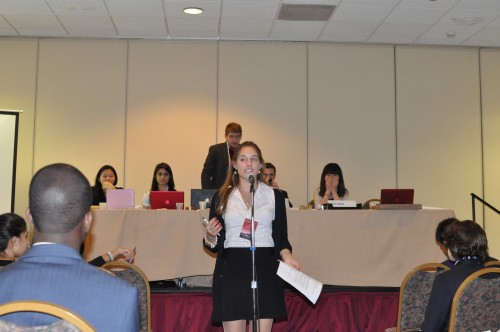
Undersecretary-General for the General Assemblies Alice Kissilenko addresses the UNICEF committee to make sure the novice delegates are all having a good first Model UN experience.
Next we’ll move on to some of the other committees. Speeches and moderated caucuses are more common in the medium-sized and smaller committees.
United Nations International Strategy for Disaster Reduction (UNISDR)
The UNISDR addressed Universal Standards for Infrastructure and Early Warning Signs and Disaster Response to Earthquakes and Tsunamis. I caught the committee during an extended round of moderated caucus and the debate centered around the creation of a fund for disaster relief and a controversial operative clause on insurance.
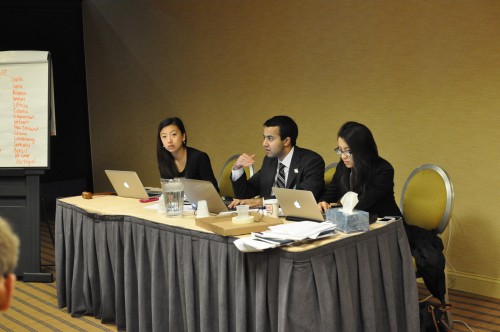
Chair Anant Shukla explains how to divide the question if needed for the controversial clause in the draft resolution
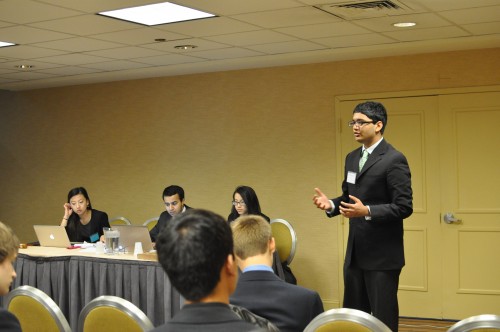
The Russian Federation (West Windsor-Plainsboro High School North) is against creating redundant funds
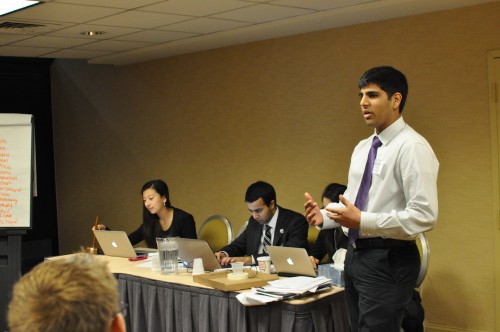
France (West Windsor-Plainsboro High School South) is one of the caucus bloc leaders and explains his country's and his allies' stance in the UNISDR
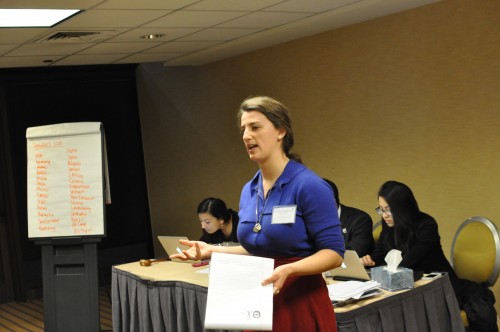
The Democratic Republic of the Congo (The Field School) is also a leader in the same caucus bloc as France and expands on France's previous comment
World Health Organization (WHO)
The World Health Organization discussed Neglected Tropical Diseases and the Trafficking of Organs.
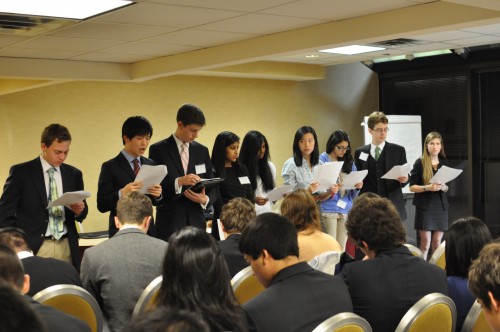
The sponsors for a draft resolution in WHO read off their 32 operative clauses to address malaria. From left to right: Dominican Republic (Trinity Pawling School), Gambia (Blair Academy), Uruguay (Hatboro-Horsham High School), Niue (West Windsor-Plainsboro High School North), Germany (Franklin High School), France (West Windsor-Plainsboro High School South), DPR Korea (Colegio Puertorriqueño de Niñas), Russian Federation (West Windsor-Plainsboro High School North), and China (Langley High School).
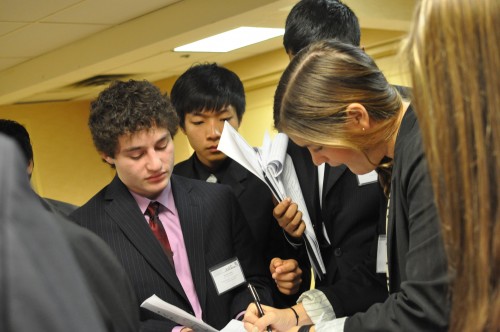
The United Kingdom (Horace Mann School) convinces Latvia (American School Foundation of Guadalajara) to sign onto an amendment
United Nations Scientific, Educational, and Cultural Organization (UNESCO)
UNESCO discussed Access to Information and Communication and Violence Against Women.
Commission on Crime Prevention and Criminal Justice (CCPCJ)
The CCPCJ discussed Corruption and Delivery of Services and Domestic Terrorism.
Economic Commission for Latin American and the Caribbean (ECLAC)
Delegates in ECLAC worked on the Impact of Political Violence on Development and Managing Infrastructure Development and Human Settlement.
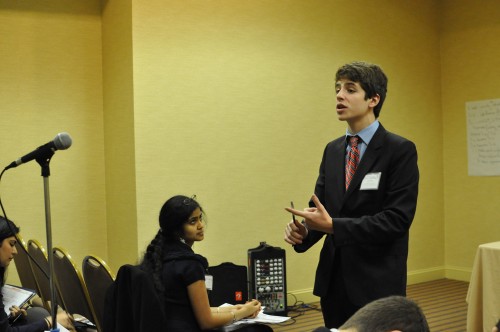
The United Kingdom (Horace Mann School) lists all the reasons why companies would not invest due to political violence
African Union (AU)
The African Union tackled the issues of South-South Cooperation in African Development and the Instability and Crisis in Somalia.
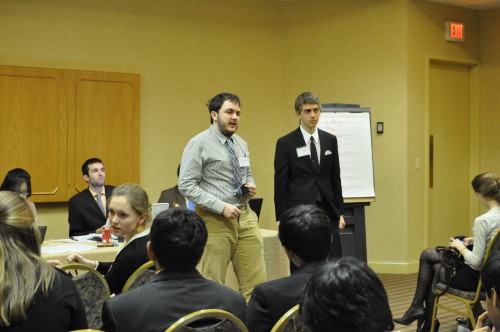
The co-delegates of Zimbabwe (Carrboro High School) speak about how the African Union can help Somalia
European Commission (EC)
The European Commission debated two very relevant topics: European Agriculture Policy and European Immigration Policy.
Consiglio dei Ministri
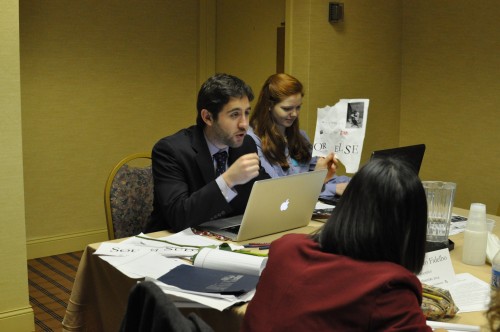
Crisis Director Alex Haber is outraged that a ransom of a Fiat Board Director is all over the Internet
Institute for Intelligence and Special Operations: Mossad
Napoleonic Wars
Titans of Industry
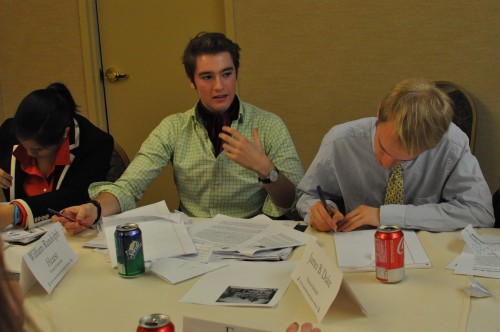
William Randolph Hearst disagrees with Jay Cooke and isn't willing to use his media outlets to influence the government
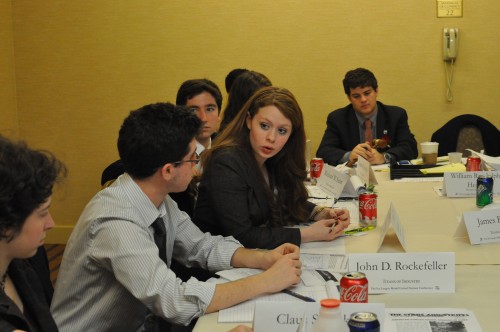
Frank Woolworth (speaking) has a different opinion on the workers strike issue than John D. Rockefeller
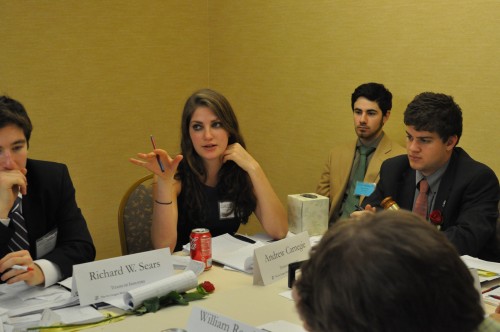
Andrew Carnegie says that the industrialists should present a united front regardless of which solution they decide on
Joint Crisis: Athens vs. Sparta
United Nations Security Council
The UN Security Council was working on the conflict in Sudan and South Sudan when I observed.
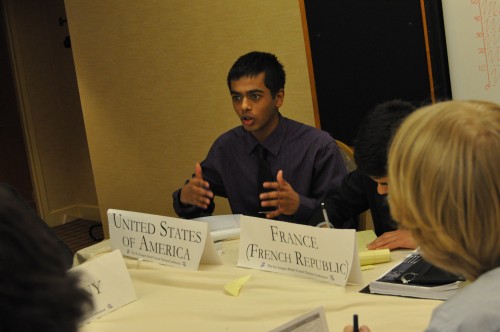
The United States (Thomas Jefferson High School of Science & Technology) strongly disagrees with China
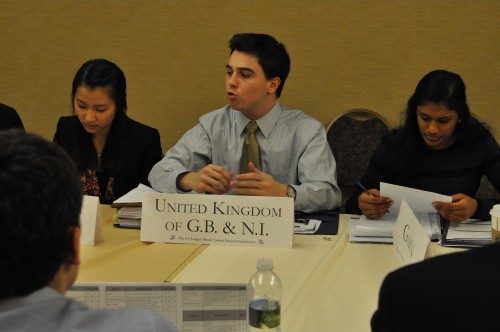
The United Kingdom (Horace Mann School) suggests confidence-building measures and cultural diplomacy to resolve the issue
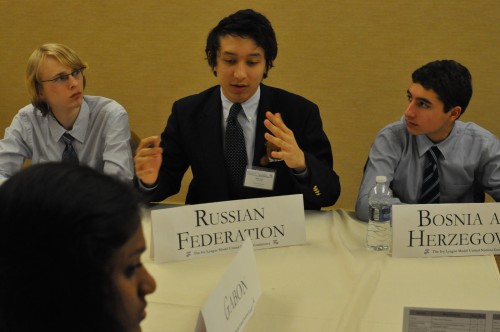
The Russian Federation (West Windsor-Plainsboro High School North) wants to diffuse the conflict first
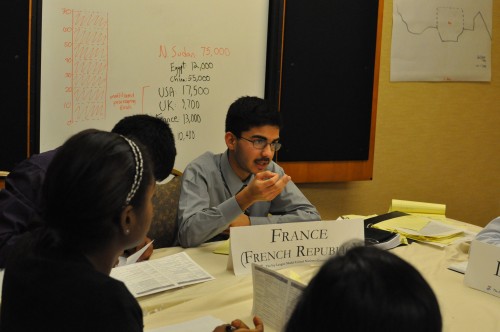
France (West Windsor-Plainsboro High School South) is strongly opinionated on taking sides on the conflict and cites UN precedent in doing so
International Court of Justice (ICJ)
I actually flew into Philadelphia from the Netherlands where I was visiting THIMUN and I dropped by the actual International Court of Justice in The Hague while I was there, so I was curious to see which cases the justices would be discussing here. Most of the debate centered around war crimes related to Serbia — I sat in while delegates were discussing genocide in Croatia.
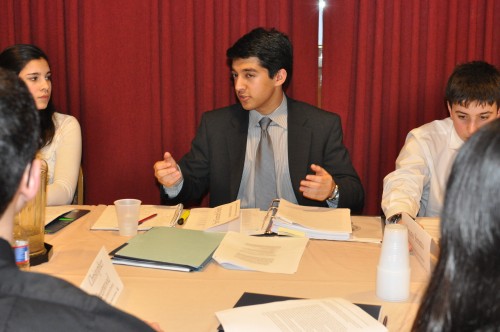
This justice seems to have a different opinion than most of the rest of the court and questions some of the assumptions in the arguments
Ad Hoc of the Secretary-General — United States National Security Council
The Ad Hoc committee is meant to be for experienced delegates. The committee and the topics for debate are not revealed until the actual conference. It turns out to be the U.S. National Security Council and the delegates have to deal with all sorts of issues including a virus that may have originated from China.
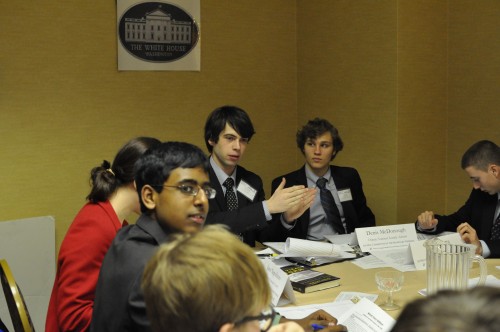
The Director of National Intelligence suggests applying the Pareto Principle -- the 80/20 rule -- to resolve the crisis
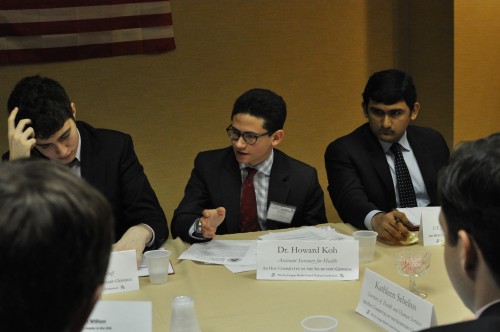
The Assistant Secretary for Health has some expertise to offer to the committee in regards to dealing with a virus
Forum of Non-Governmental Organizations
Non-governmental organizations (NGOs) have become increasingly active in the international community, as governments have been unable to meet all of their citizens’ needs. The Forum of Non-Governmental Organizations is a unique committee where delegates represented the actual organizations committee debate. They made policy recommendations and petitioned delegates within ILMUNC’s other committees to be utilized in their resolutions. We interviewed the Vice Chair and the NGO representatives in the video below to share their experience:
And finally, a few photos of the conference in general:
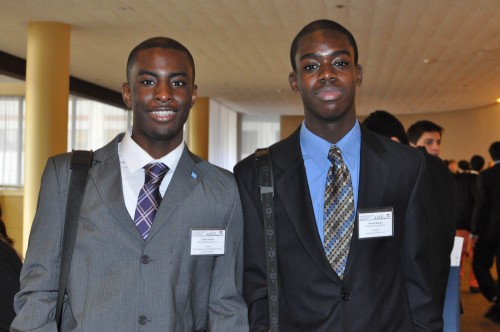
Two Best Delegate fans from Elmont Memorial High School are excited to meet me. Thanks for following our website!

